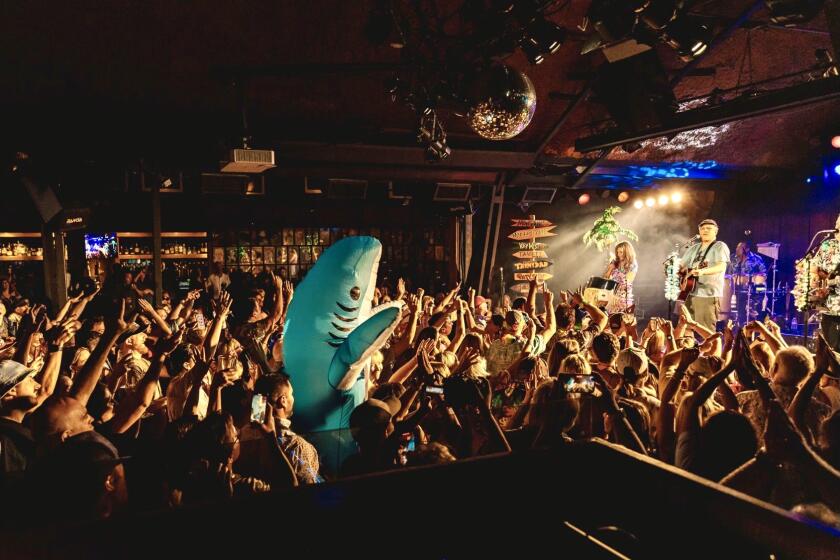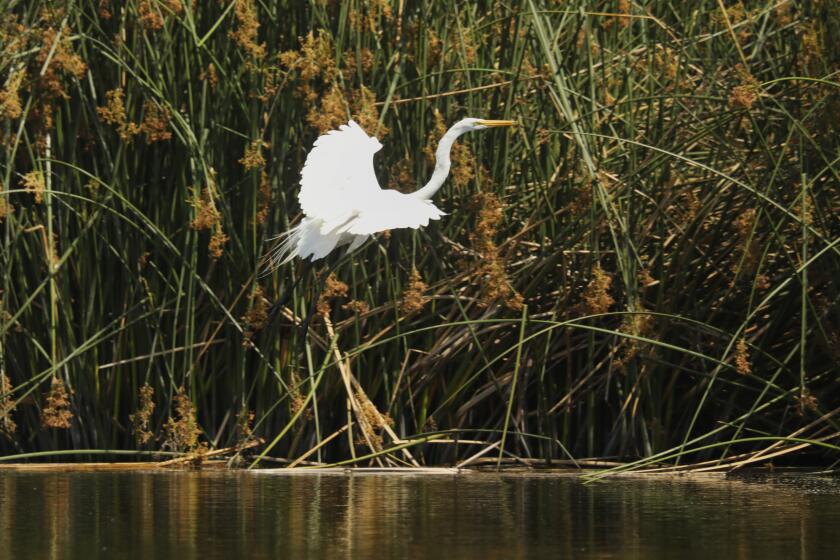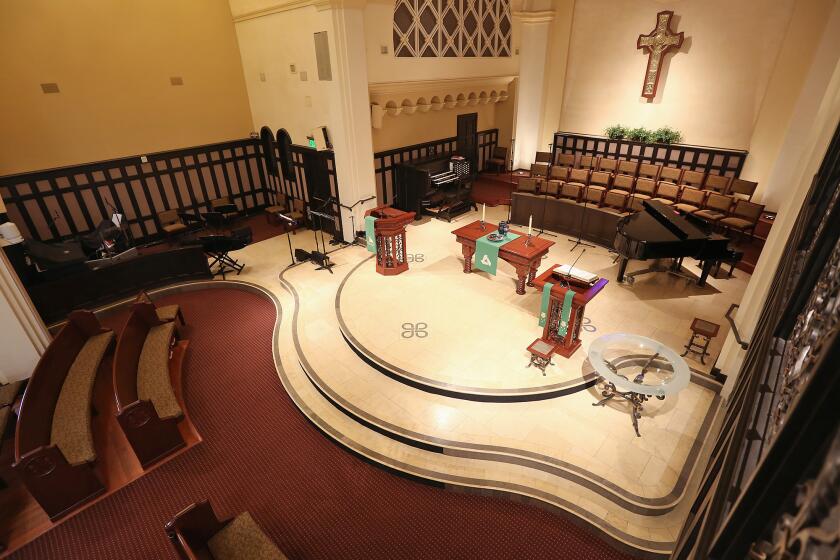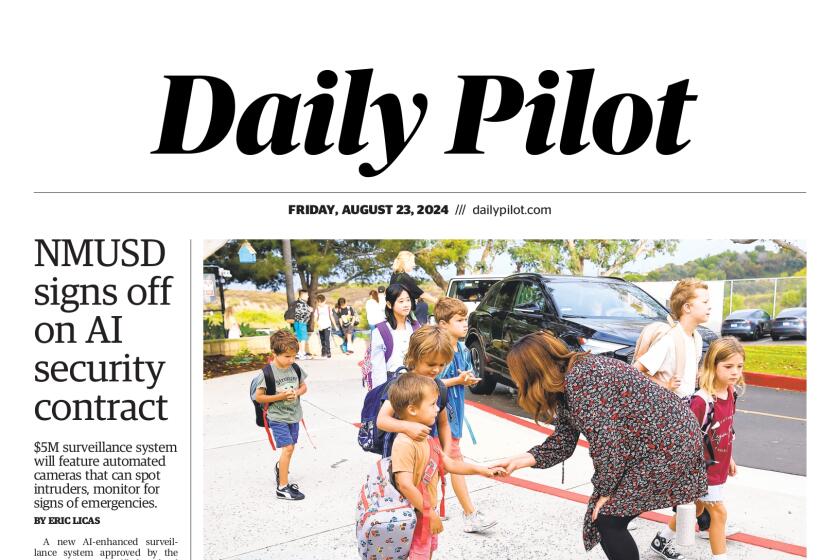Working beyond Earth’s boundaries
Robert J. Parks of Balboa Island is a pioneer in space exploration.
As a project manager for some of the most important space projects
in American history, such as the Explorer and the Surveyor -- the
reason NASA was able to put a man on the moon -- Parks saw it all, or
rather, helped make it all happen.
The 82-year-old California native earned an electrical engineering
degree from Cal Tech and received radar training from MIT and Harvard
through his service in the Army. He worked for the Jet Propulsion
Laboratory for 40 years; during that time, he was instrumental in the
NASA projects that have gotten space exploration to where it is
today.
The Daily Pilot’s Lindsay Sandham recently sat down with Parks to
hear some of his fascinating stories and learn about outer space.
How long have you lived on Balboa Island, and have you seen many
changes?
I was brought down here when I was a baby -- maybe 2 or 3 years
old. My folks were living in Glendale, but my grandparents were down
here ... My grandfather had a little shack where that fire station is
now ... I learned to swim over here on the canal by the bridge.
You grew up in Glendale, and you came down to visit a lot?
Yeah, in the early days. My dad got let go from Union Oil Company
during the Depression, and he built a gas station over where the fire
station is now. There used to be a 76 gas station there; he sold gas
-- that’s how we got through the depression.
What kinds of work have you done?
World War II started while I was in college [at Cal Tech.] I
signed up with Single Corps Reserve. They offered to let me finish
college, then take me in on active duty right after I graduated, in
February of ’44. Then I got sent by the Army to Harvard and MIT to
learn about radar, which was a brand new thing and very up and coming
and important in the war effort. Shortly after I got out of the Army,
after the war, in 1946, I was asked by some classmates of mine to
come over and work at JPL.
Let’s talk a little more about JPL, since you did some impressive
work with them.
Let me start back in the beginning. JPL is a branch of Cal Tech.
It’s always been sponsored via contract by one form or another of the
government. Initially, it was an Army ordinance department, and we
were experimenting with rockets in those days; it was something brand
new and frowned on by some people, because they thought it was
unrealistic. By the time I joined JPL in 1947, they were building a
rocket called the Corporal, and they needed someone to oversee the
guidance and control system for it. So, that’s what got me hired.
Later on, you were working on a multi-stage rocket.
While we were building this, we realized that if we put one more
stage on it, it could actually go into orbit. We tried to sell it to
the government and then politics got in the way, and they finally
gave the job to the Navy who had no real experience in it at all, and
after several failures, they came to us and said, “How long will it
take you to do it?” And we said, “Ninety days.” And that’s the
Explorer, the U.S.’s first satellite. Then they decided to start
NASA, to help us catch up. So, after the start of NASA, we got
transferred to NASA from the Army ordinance department. We asked when
we first joined them if we could be the ones to do the unmanned
exploration of lunar planets, and they agreed because they were busy
working on the manned program.
Sending a man to the moon?
Yes. It wasn’t long after that that my boss pulled me in one day,
Dr. Pickering; he called me in one day and said, “I’d like you to
initiate and carry on a planetary exploration program, to go out and
explore the planets.” Now, you don’t get opportunities like that very
often. I’ve always said I was lucky to be in the right place at the
right time with the right training. I decided to start off by going
to the closest planet, which is Venus, and we set up a program that
would go to Venus first, Mars next and then look for opportunities at
the more difficult ones.
What did you enjoy most about your work in space exploration?
It was the excitement and the opportunity -- nothing like this had
been done. We had to make it up as we went along. That was a great
challenge -- but with great rewards. We were contributing to the
learning of things for the first time in history.
Do you ever miss working?
Yes and no. There comes a time when you have to retire. I keep
abreast at what’s going on and what’s happening at JPL. I have a son
working there; he’s a project manager now too. It’s amazing to see
what’s going on and see what’s happening with what you started. It’s
a real evolutionary process.
All the latest on Orange County from Orange County.
Get our free TimesOC newsletter.
You may occasionally receive promotional content from the Daily Pilot.



